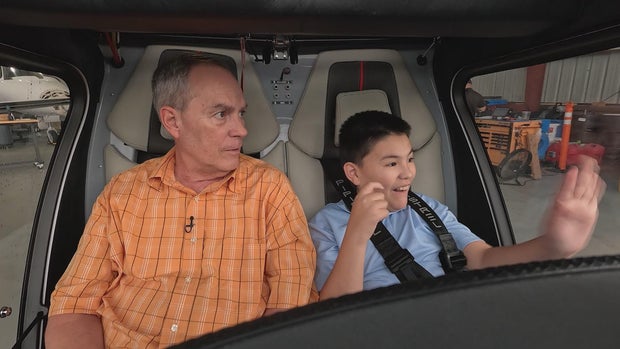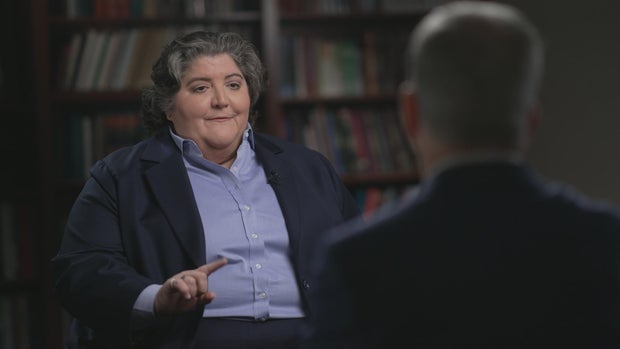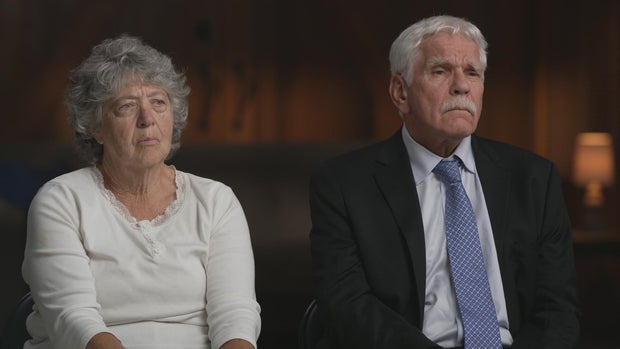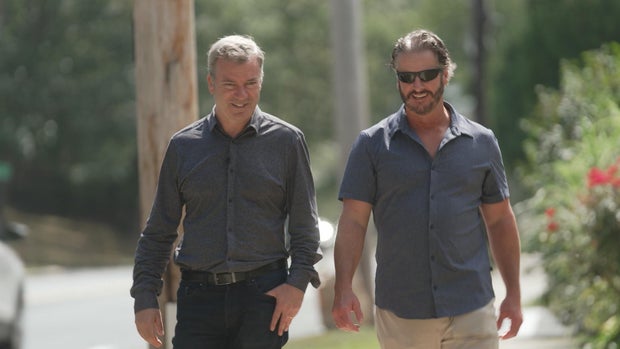At his six-month check up, Jacob Thompson received a combination shot that included the recommended childhood vaccinations against diphtheria, tetanus and pertussis, or DTaP, all deemed safe and effective in clinical trials. Later that day, Jacob began to seize.
Doctors hoped the seizure was a one-time reaction. It wasn’t. In the following months as the seizures continued, doctors diagnosed Jacob with a rare and severe form of epilepsy. His parents, John and Huali, became increasingly convinced that their son’s condition could be traced back to his six-month shot.
“Vaccines are great. They’ve done a lot to help people. I think that parents need to know what can happen,” John Thompson said.
Serious vaccine injuries are so rare that, while hard to quantify precisely, their have been likened to lottery odds and lightning strikes. When an injury happens, families like the Thompsons can go to vaccine court, part of the National Vaccine Injury Compensation Program. The court is not a place to prove or disprove the safety of vaccines, but rather to compensate the injured.
The Thompsons’ experience with vaccine court
Jacob’s life now is drastically different than it was before his first seizure. He was born in St. Louis on New Year’s Eve 2011, rounding out a family of four, with sister Meili and parents John and Huali.
“He would be able to jump up and down on my wife’s lap, and very alert, recognized who mom and dad was,” Jacob’s father said.
That all changed after he got his six-month vaccinations, Jacob’s parents said. By age two, Jacob could suffer up to 700 seizures in one day.
60 Minutes
The Thompsons, seeking accountability, took their case to Renée Gentry, who is a leading vaccine injury litigator and director of the Vaccine Injury Litigation Clinic at George Washington University Law School.
“All of my clients are vaccinated. Most of them will start the conversation by saying, ‘I’m not anti-vax,'” Gentry said.
The Thompsons are not anti-vaxxers and are not invested in the heavily charged vaccine debate. They’re invested in their son, Jacob — an anguishing exception, harmed by what they say is otherwise a public health force of good.
In July, the Thompsons received a judgment of $2.1 million in vaccine court based on the special master’s ruling that it was more likely than not that Jacob’s six-month vaccinations aggravated an underlying genetic mutation. Jacob, now 13, also received a lifetime annuity to cover his future care.
The development of the National Vaccine Injury Compensation Program
Jacob is one of around 12,000 Americans who’ve received payments through vaccine court since it was started in the late 1980s. Almost $5 billion has been made in payouts since the program began.
The National Vaccine Injury Compensation Program was established in response to a public health scare in the 1980s. When families of injured children went to civil court and successfully sued the manufacturers of the DTP vaccine — an older version of the DTaP vaccine — it caused all but one of those drug companies to pull out of the market, resulting in vaccine shortages.
Congress crafted a bill that partially shielded drug manufacturers from liability so they would continue to develop life-saving vaccines.
“It’s bipartisan. It takes everyone’s views into account. And everybody compromises, which is a dirty word now. But that’s the goal of it,” Gentry said. “And it’s helped these people. Jacob will be taken care of for the rest of his life because of this program.”
60 Minutes
While global immunizations have saved an estimated 154 million lives worldwide, Congress acknowledged that vaccines can cause injury. As bill sponsor Sen. Ted Kennedy described, when “children are the victims of an appropriate and rational national policy, a compassionate Government will assist them in their hour of need.”
There’s no jury in vaccine court. Cases are decided by one of eight judges called special masters. The court pays lawyers by the hour. Where does money come from? There is a 75-cent tax imposed on recommended childhood vaccines which goes into a trust fund earmarked for vaccine injury compensation.
People who believe they’ve been injured by a vaccine can still sue a manufacturer, but they have to file in vaccine court first. And the burden of proof for claimants is lower in the National Vaccine Injury Compensation Program, so it’s easier for people to get compensation, Gentry said.
Drug companies are left out of the proceedings in the National Vaccine Injury Compensation Program. It’s a “no fault” court, meaning negligence does not need to be proven, just that the vaccine more likely than not caused the injury.
“There’s very clear indication that said it would be better to compensate somebody that wasn’t injured than to miss somebody who was,” Gentry said.
The program is structured around a Vaccine Injury Table listing eligible vaccines and injuries. If your child, for instance, got a rubella vaccine and developed chronic arthritis within seven to 42 days, you may be eligible for damages.
The most common compensation is for shoulder injuries suffered from a misplaced injection. You can file for an injury not on the table. Overall, about half of all claims are dismissed.
The table now has 16 vaccines listed, up from six when it was created. It includes the annual flu shot, though not the COVID vaccine. Autism is not listed among the eligible injuries.
Vaccine court and autism
The decision to leave autism off the injuries list did not come easily, retired Special Masters Denise Vowell and George Hastings said. The issue was litigated and decided in their court 15 years ago.
In the early 2000s, cases alleging vaccinations caused autism flooded the court, more than 5,000 in all. Vowell, Hastings and a third special master oversaw what was a class action of sorts that spanned almost a decade.
60 Minutes
Vowell said the special masters ultimately concluded the evidence wasn’t there. Vowell had hoped it would be. “Because the parents of children with autism go through so much,” she said.
But, she told 60 Minutes, she could not base her decision on sentiment.
“I had to apply the law. And the law was that if there is a preponderance of evidence of vaccine causation, I rule for them. If there isn’t, I rule against them,” Vowell said.
All three special masters concluded there was no link between vaccines and autism. On appeal, eight additional federal judges unanimously upheld the vaccine court decisions.
This has not been persuasive to Health and Human Services Secretary Robert F. Kennedy Jr.
Secretary of Health and Human Services Kennedy, whose uncle was a champion of the court, is imbued with the authority to add or redefine injuries on the vaccine table.
He declined a 60 Minutes request for an on-camera interview but said via email that he would like to “expand the table,” which he hopes will create an easier path to compensation. In particular, he wants to broaden definitions for “seizures and encephalopathy,” two neurological conditions that can be associated with autism.
Criticism of vaccine court
Kennedy told 60 Minutes that though the court’s original intent was “idealistic, compassionate, and sensible,it has become “a disaster for the families of injured children. Its effective function is delay, denial, and systematic cruelty.”
Ryan Farrell, who received a tetanus shot in 2017 after cutting his hand on some rusty metal, is very familiar with the delays in vaccine court.
He started suffering pain a few days after getting the tetanus shot.
“I felt like my back was just, like, being stabbed, like I was being like crushed,” Farrell said.
60 Minutes
At one point, he could see out of only one eye. His bladder shut down. He was hospitalized multiple times over the next few years. Doctors diagnosed him with a rare autoimmune disease.
“I didn’t wanna live for a long time,” Farrell said. “That’s how I felt.”
His wife, Angela, made the link between Farrell’s condition and his tetanus shot. She hadn’t heard of the National Vaccine Injury Compensation Program at the time, but stumbled upon it online and found a lawyer.
They filed a case in 2019, and only in July of this year did the special master rule that the tetanus shot more likely than not, likely led to Farrell’s illness.
Vaccine court was intended to compensate people for vaccine injuries “quickly, easily, and with certainty and generosity,” according to Congress.
“That couldn’t be further from the truth,” Farrell said.
He remains unable to work. And six years in, the court has yet to determine his damages.
The court acknowledges the delays. Citing a backlog of more than 3,000 cases, its chief special master has — in documents obtained by 60 Minutes — asked Congress for help four years running, saying, “it becomes more difficult each year to resolve the huge number of case filings in the expedient fashion they deserve.”
Yet, Congress has not acted.
Vaccination has become such a loaded, heavily politicized issue that some legislators appear to be reluctant to wade in.
“If what you care about are vaccine-injured people, and them being compensated, then you want this court to work. And you want this court to be here,” Gentry said.
Source link





